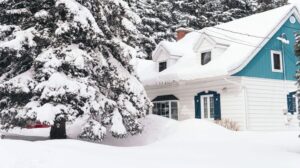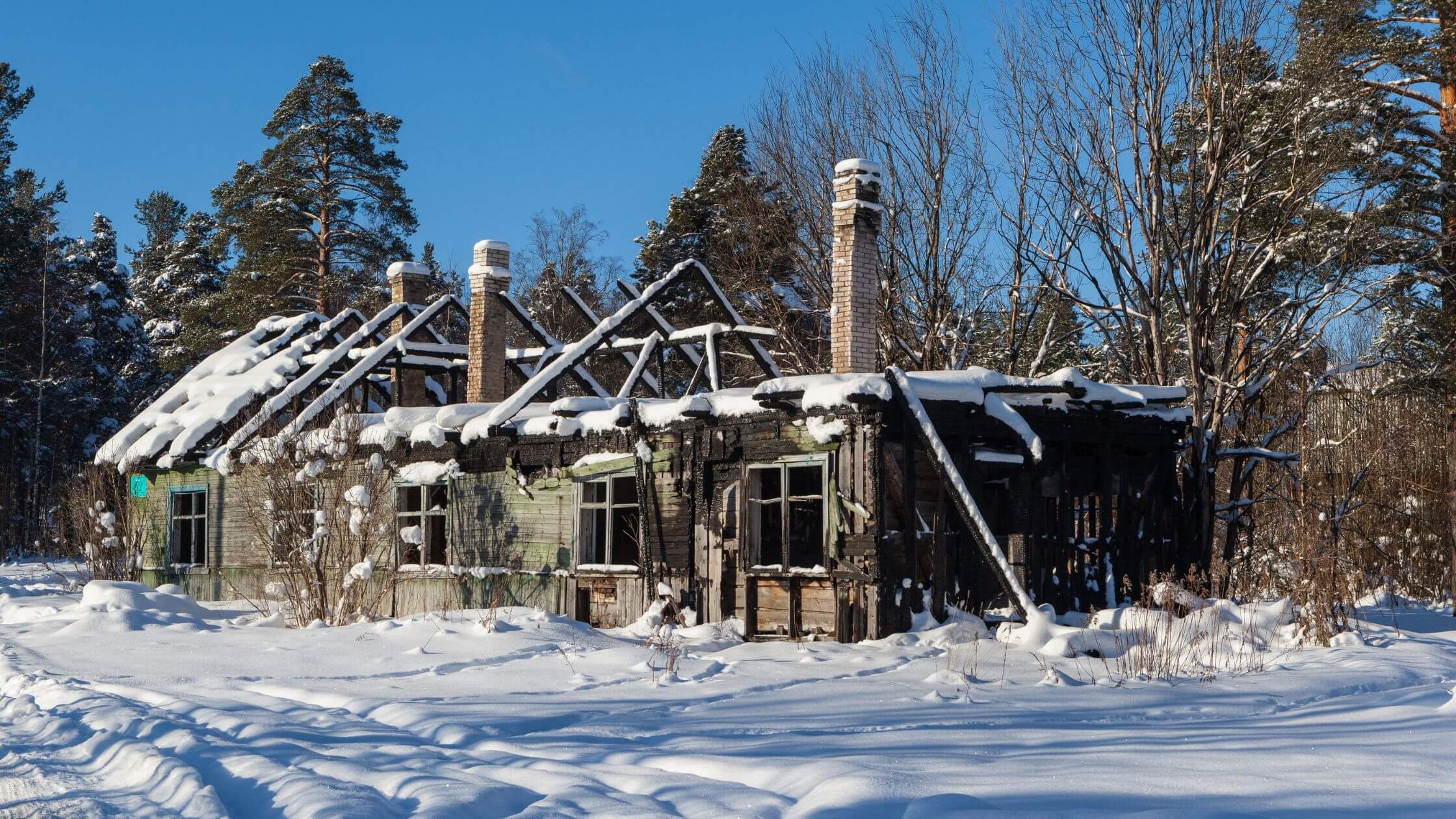 House fire risk remains a constant danger regardless of the season, yet it unmistakably escalates as temperatures fall. This trend highlights the importance of being vigilant and taking proactive steps to safeguard against the increased house fire risk during the colder months, when the use of heating appliances and fireplaces becomes more prevalent.
House fire risk remains a constant danger regardless of the season, yet it unmistakably escalates as temperatures fall. This trend highlights the importance of being vigilant and taking proactive steps to safeguard against the increased house fire risk during the colder months, when the use of heating appliances and fireplaces becomes more prevalent.
House fires may also be more deadly today than they were, say, 20 years ago, and this is because many furnishings in contemporary homes are constructed of synthetic materials. These synthetic materials often burn fast leaving people little time to flee a house fire.
In fact, experts say that residents used to have approximately 7 to 10 minutes to escape a burning home but only have around two minutes today.
The American Red Cross reports that the number of house fires rises between the fall and winter seasons, peaking in December and January. Additionally, The U.S. Fire Administration calculates that 890 persons per year die in winter house fires. These statistics are alarming, but there are many things you can take to protect yourself.
According to experts, the main causes of winter fires are candles, cooking, Christmas trees, other holiday decorations, and heating devices like space heaters.
All of this points to the importance of understanding how to stop house fires from starting in the first place is crucial. Here are some safety recommendations every homeowner needs to consider in order to minimize risks and avoid the troublesome and potentially costly process required to sell a fire-damaged house.
Tips for Preventing House Fires
Turn off your space heater before you go to bed and keep nothing within three feet of it
It goes without saying that you’ll want to stay warm during the chilly winter months, but experts advise utilizing space heaters with caution. Many people believe you can purchase one, turn it on, and do nothing else, but it’s actually not that easy.
According to firefighting professionals, heating is the second-leading cause of house fires, injuries, and fatalities in the US. When a heater is too close to flammable objects or experiences mechanical or electrical problems, it may result in a house fire, often with fatal results.
From 2012 to 2016, there were an average of 52,050 fires involving heating equipment that required the assistance of U.S. fire departments. In those fires, 86 percent of the fatalities were related to space heaters.
Experts advise that you keep a three-foot clearance around the space heater at all times and turn it off before you go to bed in order to stay safe.
When you’re awake, you should turn on the heater to warm the room you wish to sleep in. Once you’re asleep, though, you should switch it off. You shouldn’t leave it running all night.
Verify that your smoke alarms are functional
The smoke alarm is unquestionably one of the keys to preventing house fires that cause serious damage and death. They are often the first indication that there is a fire.
The great majority of home fires occur in residences without working smoke alarms or residences without any smoke alarms at all.
According to statistics, nearly three out of every five home fire fatalities occurred between 2012 and 2016 in residences without smoke alarms or residences with smoke alarms that were inoperable.
Experts advise replacing any smoke alarm that is more than ten years old and checking your smoke alarms at least once a month. Taking this vital step can prevent you from dealing with the complex process of trying to sell a fire-damaged house should a fire incident occur.
It is also advised that you replace batteries in your smoke alarms once a year (or whenever the alarm chirps to alert you that the battery is low).
Also, ensure you install smoke alarms on every level of your multi-story property.
One more thing, you should also have carbon monoxide detectors. The CDC advises installing carbon monoxide detectors close to every part of your home where people sleep.
Avoid connecting anything that produces heat or cold air with an extension cord
Plug any heating or cooling appliance, like air conditioners or space heaters, directly into the wall. The same holds true for appliances like refrigerators, microwaves, and toasters.
Plus, it is also advised that only one of these items should be connected into an outlet at a time.
That’s because these types of items consume too much electricity and an extension cord is often unable to manage that amount.
Extension cords may appear convenient, but you should actually take caution when using them. In fact, according to experts, you should only use extension cords as temporary workarounds for your electrical demands.
Firefighting pros advise hiring an electrician to add more outlets to your home instead of relying on extension cords for a long time.
Clear the lint trap in your dryer
Experts say that between 2010 and 2014, there were 15,970 home fires involving washing and drying machines for which U.S. fire departments were called.
A staggering 92 percent of the incidents were the fault of dryers, and a third of those fires were caused by a failure to clean the appliance.
Mechanical and electrical issues were primarily to blame for the other dryer and washer fires.
Always use lint filters in dryers and clean them before and after each laundry load. Also, maintain a clear space around your dryer to prevent fire hazards from boxes, cleaning supplies, and clothing.
If you have a fireplace, be sure to properly dispose of the ashes
There are safety precautions in understanding and mitigating house fire risk. The fireplace is probably the only place in your house where you’d want to have a fire going.
The NFPA recommends having a competent professional inspect your chimney and vents annually to prevent chimney fires.
Additionally, store cooled fireplace ashes in a sealed metal container outside, at least 10 feet away from your home and other structures.
Remove all fire hazards from around the fireplace area and never leave a lighted fireplace unattended.
Yes, sleeping while in front of the warm fire counts as being “unattended,” despite how appealing it can be.
Read Also: What You Need To Know About Chimney Fires As Temperatures Grow Colder
Never leave the stove unattended while cooking
Cooking is one of the main causes of house fires at anytime of the year.
That’s why when you are cooking you should stay in the kitchen and watch what you’re preparing. Food packaging, pot holders, or dish towels should not be kept close to the stove.
Also, never use your oven as a heat source. Experts say it could quickly lead to a buildup of carbon monoxide in your home.
Avoid leaving candles unattended or next to anything flammable
Candles are attractive but also quite dangerous. According to professionals, they caused 36% of home decoration-related fires between 2011 and 2015.
Experts recommend using flameless candles whenever possible. But sometimes you just want the cozy vibes that come with using a real candle, even if it’s not for religious reasons. That’s okay as long as you follow some basic safety advice.
For one thing, once a candle is burning less than two inches from the holder, put it out. The holder may become heated and catch fire if it burns completely down.
Experts also advise keeping candles at least one foot away from anything that can catch fire.
Additionally, be sure to extinguish any flames before bed and before leaving a room.
What to do if You Suffer a House Fire in Winter or Any Other Time of Year
If you have suffered a house fire, you can sell your home in as-is condition to We Buy Fire Damaged Houses. This will help you avoid a long, challenging repair procedure. We pay all cash and offer great prices. To learn more, complete the short form below.
Photo by Matthieu Joannon on Unsplash

